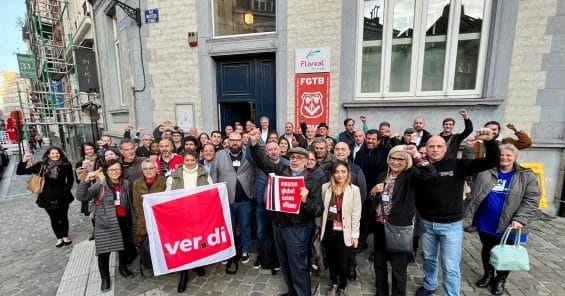Since several years Hollywood writers have been concerned with the changing roles and practices of talent agencies. As agencies have shifted their models from commissioning receiving 10% of the compensation they negotiate for writers, to packaging deals, which provide for direct payment from the studios to the agencies and includes hugely profitable participation of the agencies in the profits of the studios. Today, the four big talent agencies that literally control access to the top writing talent, impose the packaging model for the vast majority of shows. Agencies reap huge profits while the earnings of writers are stagnant at best despite a booming industry.
WGA-West President David A. Goodman summarised the situation in a speech during a membership meeting in February: “Something fundamental is wrong in the agency business: writers are being hurt, and it is the right and the responsibility of the WGA to fix what has gone wrong.”
Already in March 2018, the Writers Guild of America West and the Writers Guild of America East representing together more than 13 000 writers in Hollywood and across all the US have made proposals to the ATA, the association representing talent agencies, to address the issues in a renewed contract between the guilds and the agencies before it was set to expire on 6 April 2019. The Guilds’ goals for a new contract include eliminating the practices that constitute a conflict of interest, notably the practice of packaging deals, and requiring the agencies to work with the Guild to enforce contracts and protect writers’ interests.
The guilds met several times with the ATA in recent weeks and agreed to their request to extend the contract period for a week to facilitate reaching an accord. However, the agencies most recent offer ignores the basic demands of writers to end the agencies conflict of interest. The guilds’ membership responded to the refusal of agencies to engage in a real change by voting to implement the Agency Code of Conduct under which every agency is now required to become a signatory to the Code. Guild members cannot be represented by agencies anymore that have not signed the Code.
In recent weeks, more than 7000 writers have left agencies who refused to sign the code. On 17 April, the WGA-West filed a lawsuit in Los Angeles Superior Court seeking to establish that talent agency packaging fees are illegal under both California and federal law. The key of this deadlock is ATA’s refusal to change and to recognize the primacy of the Guilds and their legal right to the information as exclusive bargaining representative for writers.
The Guilds’ campaign is an important fight. The practice and attitude of the top US talent agencies do hurt the economic interest of our colleagues and put in danger the right of their unions to enforce the provisions of the collective bargaining agreement. This goes right to the heart of trade union rights and the ability of unions to represent and defend their members interest.
UNI MEI stands with the guilds and their campaign. To support our colleagues, follow, like and retweet their campaign messages using the hashtag #IStandWithTheWGA and give a shout out to @WGAWest @WGAEast
To learn more on the ongoing campaign and to get updates go to: www.wga.org and www.wgaeast.org


